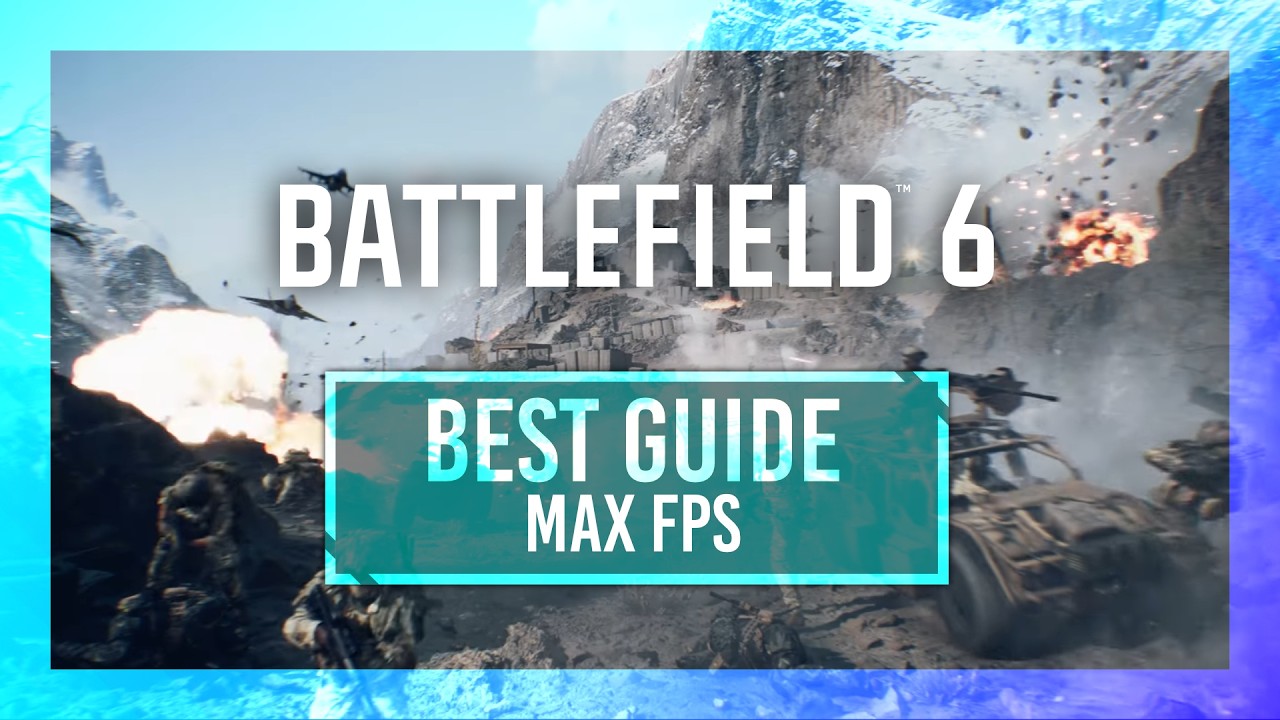Battlefield titles are renowned for their visual fidelity, and Battlefield 6 upholds this tradition. Early observations suggest that maximizing frame rates on PC will require careful configuration of graphics settings, as the game can be quite demanding.
This guide aims to simplify that process. We`ll detail each PC graphics setting in Battlefield 6 and recommend optimal values to help you achieve both impressive visuals and a high frame rate, ensuring you get the best performance from your system.
Getting Started: Navigating Graphics Settings
To begin adjusting your graphics, navigate to the main menu in Battlefield 6, locate the cog icon at the top, and select the `Graphics` section from the left-hand menu.
This menu allows modification of general display options, such as resolution and monitor selection. While many of these are user-dependent, our recommended base settings for this section are provided below:
General Display Settings
Graphics
- Graphics Quality: Custom
- Brightness: 50-60
- Sharpness: 75
Camera
- Field of View: 105-110
- Vehicle 3rd Person Field of View: 83
- Weapon Field of View: Wide
- World Motion Blur: 0
- Weapon Motion Blur: 0
- Camera Shake Amount: 20
- Chromatic Aberration: Off
- Vignette: Off
- Film Grain: Off
Display
- Fullscreen Mode: Borderless or Fullscreen
- Fullscreen Device: Your preferred monitor
- Fullscreen Resolution: Your preferred resolution from the monitor you`re using
- Aspect Ratio: Auto
- Refresh Rate: Maximum Hz of your monitor
- Vertical Sync: Off

Additional sections within the graphics menu primarily concern the HUD, which can be adjusted to personal preference without significant impact on performance.
Fine-Tuning Individual Graphic Settings
Returning to the main `Graphics` section, you can delve into `GRAPHICS` to fine-tune individual settings. This granular control lets you balance visual quality and performance by adjusting options based on their impact on your PC.
Detailed Graphic Settings
Graphic Settings
- Texture Quality: High
- Texture Filtering: High
- Mesh Quality: Low
- Terrain Quality: Medium
- Undergrowth Quality: Low
- Effects Quality: Low
- Volumetric Quality: Low
- Lighting Quality: Low
- Local Light & Shadow Quality: Low
- Sun Shadow Quality: Low
- Shadow Filtering: PCF
- Reflection Quality: Low
- Screen Space Reflections: Off
- Post Processing Quality: Low
- Screen Space AO & GI: Off
- High Fidelity Objects Amount: Medium

While setting all options to their lowest values guarantees maximum FPS, our recommendations aim to provide a solid frame rate while preserving sufficient graphical detail for clear visibility of objects and opponents.
Advanced Performance Options
Lastly, navigate back to the main graphics menu, below `Brightness` and `Sharpness,` to find the `ADVANCED` option. Clicking this opens a new menu dedicated to upscaling and other performance-related features. Optimal settings for this menu are listed below:
Advanced Performance Settings
Advanced Settings
- Fixed Resolution Scale: 100
- Frame Rate Limiter: On and set to your maximum refresh rate (e.g., 160, 144, 240 Hz)
- Nvidia Reflex Low Latency: Enabled + Boost
- Upscaling Technique: DLSS for Nvidia users / FSR for AMD users
- Upscaling Quality: Quality (for better visuals) or Performance/Ultra Performance (for highest FPS)
- Nvidia Frame Generation: Off (adds too much input lag)
- Future Frame Rendering: Off
- Performance Overlay: Off

The choice of upscaling technology depends on your GPU manufacturer (Nvidia for DLSS, AMD for FSR) and whether you prefer native resolution. Nvidia Frame Generation can boost frame rates on compatible RTX GPUs, but be aware of the potential for increased input lag, weighing if the FPS gain justifies the latency.
This concludes our comprehensive guide to Battlefield 6`s PC graphics settings. By implementing these recommendations, you should achieve a balanced experience with optimal performance and visual quality.

